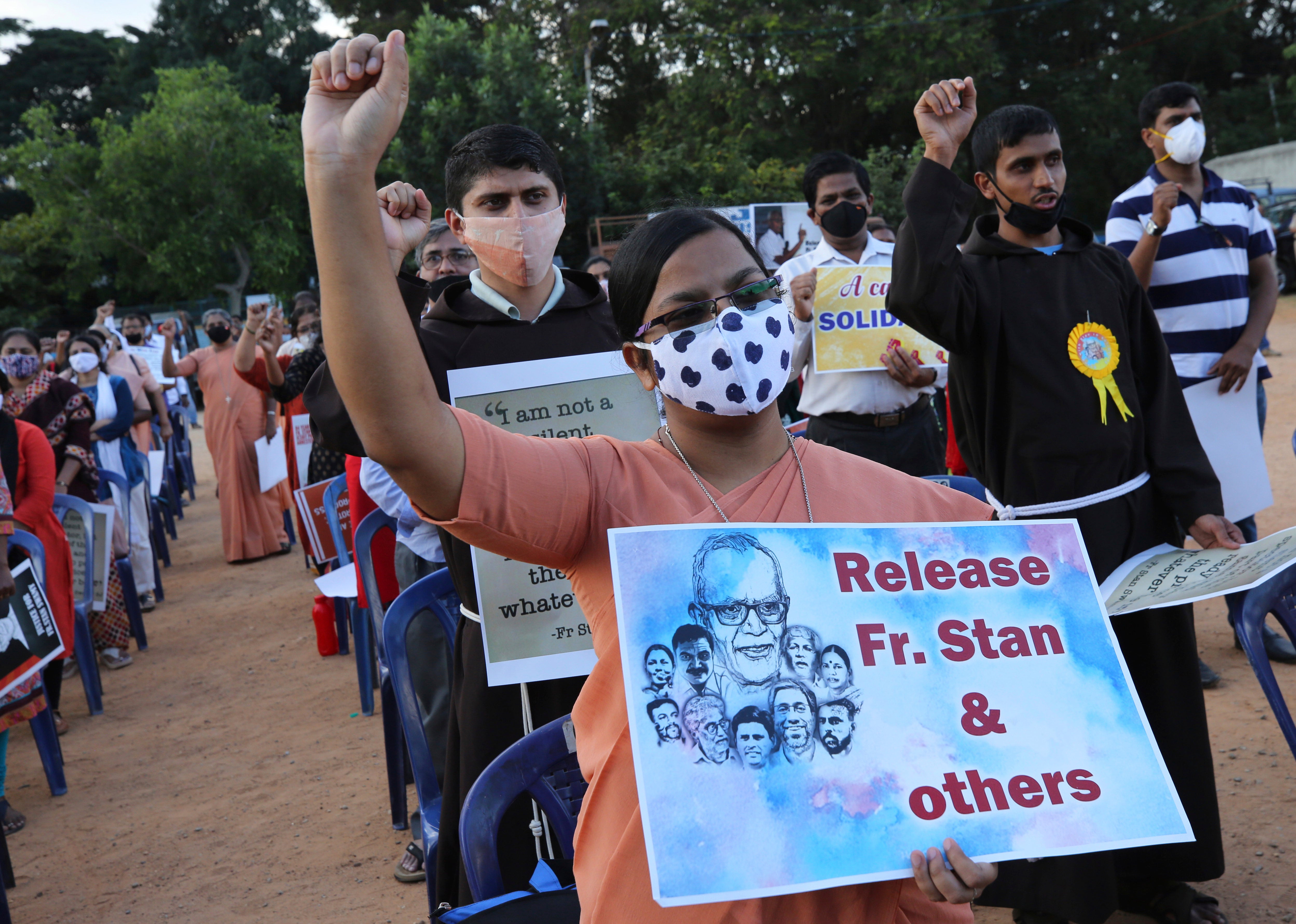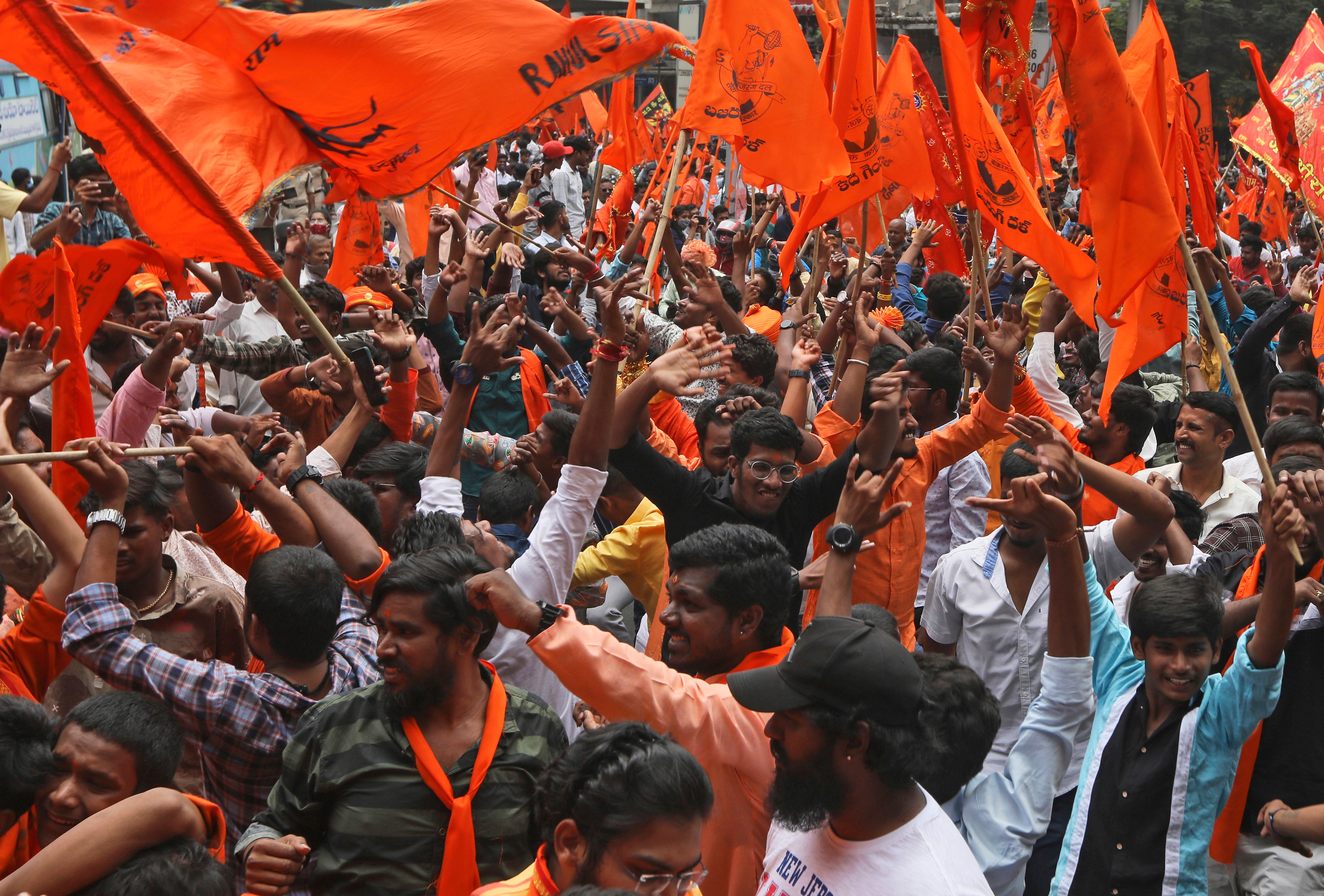US panel calls on Biden to sanction India over sliding religious freedom under Modi
Delhi has in previously pushed back against the US panel’s reports, calling it an ‘organisation of particular concern’

Your support helps us to tell the story
From reproductive rights to climate change to Big Tech, The Independent is on the ground when the story is developing. Whether it's investigating the financials of Elon Musk's pro-Trump PAC or producing our latest documentary, 'The A Word', which shines a light on the American women fighting for reproductive rights, we know how important it is to parse out the facts from the messaging.
At such a critical moment in US history, we need reporters on the ground. Your donation allows us to keep sending journalists to speak to both sides of the story.
The Independent is trusted by Americans across the entire political spectrum. And unlike many other quality news outlets, we choose not to lock Americans out of our reporting and analysis with paywalls. We believe quality journalism should be available to everyone, paid for by those who can afford it.
Your support makes all the difference.A US panel has urged the Joe Biden administration to impose targeted sanctions on India over what it called the erosion of religious freedom under the leadership of prime minister Narendra Modi.
For the third year in a row, the United States Commission on International Freedom (USCIRF) recommended the US state department designate India as a “country of particular concern” for “engaging in and tolerating systematic, ongoing, and egregious violations of religious freedom”.
In its 2022 report, published on Monday, the bipartisan panel asked the Biden administration to “impose targeted sanctions on individuals and entities responsible for severe violations of religious freedom” by freezing their assets and/ or prohibiting them from entering the US.
The Modi administration has previously rejected the panel’s findings, calling it an “organisation of particular concern”.
The report comes at a time when issues of religious beliefs, caste and faith have taken centre stage in India, in both public discourse and politics.
Though minorities make up nearly 20 per cent of India’s 1.3 billion population, they have been facing increasing persecution since 2014, when Mr Modi and his Hindu nationalist Bharatiya Janata Party (BJP) came to power, according to USCIRF.
“The Indian government escalated its promotion and enforcement of policies — including those promoting a Hindu-nationalist agenda — that negatively affect Muslims, Christians, Sikhs, Dalits and other religious minorities,” the report stated.
India’s religious freedom, a principle enshrined in its constitution, has “significantly worsened” in 2021, the report said, citing examples of suppression of critical voices through intimidation, arbitrary arrests and persecution under draconian laws such as the Unlawful Activities Prevention Act (UAPA).
The UAPA allows Indian authorities to detain people without producing any incriminating evidence and keep people in prison without trial by setting stringent requirements for bail.
The panel pointed to the federal government’s unkind treatment of Jesuit priest Stan Swamy, who was the country’s oldest under-trial prisoner arrested in relation to violence at Bhima Koregaon on 1 January 2018.
The champion of human rights for dalits and tribals “was arrested on dubious UAPA charges in October 2020 and never tried”, the report noted.
Having suffered from multiple ailments, including Parkinson's disease, Swamy died at a prison in Navi Mumbai city at the age of 84.

The report also raised the arrest of Khurram Parvez, a prominent Muslim human rights activist from India-administered Kashmir, over terror-funding charges.
“The government also broadly targeted individuals documenting or sharing information about violence against Muslims, Christians, and other religious minorities,” it said.
“Numerous attacks were made on religious minorities, particularly Muslims and Christians, and their neighbourhoods, businesses, homes, and houses of worship. Many of these incidents were violent, unprovoked, and/or encouraged or incited by government officials,” the report added.
Examples of tensions between religious communities have continued with clashes at homes and places of worship taking place in more than five states in the past month. In several states this has included the destruction of mostly Muslim-owned properties by state and local authorities.

The report also expressed concerns over the Muslim residents of Assam who face being stripped off of their citizenship due to enforcement of a National Register of Citizens (NRC), which aims to identify and deport “illegal” migrants from Bangladesh.
It also briefly touched upon anti-conversion laws that rights groups say have led to dozens of arrests of Muslim men and state overreach in interfaith marriages.
The Biden administration has refrained from directly criticising Mr Modi or his right-wing BJP government. Congresswoman Ilhan Omar asked earlier this month: “What does Modi need to do to India’s Muslim population before we will stop considering them a partner in peace?”
Following a high-level meeting between the Indian and US defence and foreign ministries in Washington two weeks ago, US Secretary of State Antony Blinken said: “We regularly engage with our Indian partners on these shared values [of human rights] and to that end, we are monitoring some recent concerning developments in India including a rise in human rights abuses by some government, police and prison officials.”
He was sharing the stage with Indian foreign minister Subrahmanyam Jaishankar and defence minister Rajnath Singh. Mr Jaishankar said the state of human rights in India had not been raised at the dialogue.
Apart from India, the USCIRF flagged 14 other countries over religious freedom concerns, including Afghanistan, Pakistan, Myanmar, China, Eritrea, Vietnam, Iran, Syria, Nigeria, North Korea, Russia, Saudi Arabia, Tajikistan and Turkmenistan.
Join our commenting forum
Join thought-provoking conversations, follow other Independent readers and see their replies
Comments